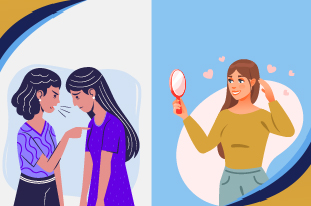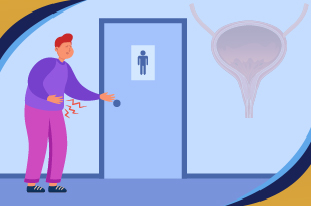Neurodevelopmental disorders, including ADHD and gender dysphoria, have become a point of controversy in both medical and social fields. ADHD is a learning disorder characterized by symptoms of inattention, hyperactivity, and impulsivity that hampers a person’s emotional and social life. Gender dysphoria, in contrast, is the discomfort felt by people who are trapped in the wrong body; that is, gender does not align with the sex at birth.
In the last years, many investigations and clinician experiences have highlighted the possible association between ADHD and Gender Dysphoria. This overlap raises important questions: Does ADHD contribute to or worsen gender dysphoria? It may be interesting to know in what ways these two conditions might affect one another.
This article discusses how gender dysphoria and ADHD are connected and cognitive, psychological, social, and neurological components as well. Additionally, the most important concern is whether ADHD causes gender dysphoria or not.
Comprehending ADHD
To assess how ADHD can potentially be associated with gender dysphoria, it is necessary to get familiar with the features of ADHD. It is a global neurodevelopmental disorder that usually begins in childhood but continues through adolescence and adulthood. It is characterized by symptoms that fall into two broad categories:
- Inattention: Inattention, forgetfulness, lack of organization, and making a lot of avoidable errors and mistakes.
- Hyperactivity and Impulsivity: Fidgeting, speaking excessively, interrupting others, impulsiveness, and not considering the consequences of his actions.
ADHD is a global disorder that is estimated to affect 5-10 percent of school-going children, and boys are more affected than girls. Still, it is believed that girls are underdiagnosed because of different symptoms. ADHD can lead to inabilities concerning executive control, mood management, and interpersonal relationships in education or work as well as in interpersonal relationships.

READ MORE: Can Anxiety Disorder Cause High Blood Pressure? Insights About The Connection
Gender Dysphoria: Definition and Symptoms
Gender dysphoria is the psychological distress caused by a mismatch between one’s assigned gender at birth, and one’s experienced or expressed gender.
Gender dysphoria is the distress resulting from the mismatch between a person’s assigned gender at birth and their expressed gender. For instance, an individual who was born with female biology might present themselves as a man or prefer to be called non-binary but will endure a lot of discomfort and unease if they are forced to live as a woman.
Symptoms of gender dysphoria include:
- The need to feel like the other sex or the sex to which the person is not assigned at birth is a compelling wish.
- Refusal of stereotyped gender roles or models.
- Continuous dissatisfaction with the match between gender and physical characteristics.
Gender dysphoria is not the same thing as being transgender. Even though many transgender people endure Gender Dysphoria, some are not affected at all. In addition, it is also important to note that not everyone who has gender dysphoria is transsexual because gender can be complex and fluid.
The Intersection of ADHD and Gender Dysphoria
Recent studies pointed to the theory that ADHD sufferers have a higher prevalence rate of gender dysphoria than the average population. Strang’s work, published in 2014, showed that children diagnosed with ADHD were more likely to be gender variant at six times the rate of children without the disorder. Although it was not the aim of this research to establish cause and effect relationship, the research made a basis for further research on the link between ADHD and gender dysphoria.
Several possible explanations have been proposed to explain the connection between ADHD and gender identity:
- Impulsivity and Self-Expression: One hypothesis is that individuals with ADHD, especially those with the impulsive-hyperactive subtype, may be less inhibited about exploring their gender identity. Impulsivity may lower the social barriers that often prevent neurotypical individuals from questioning or rejecting their assigned gender. The feeling of impulsiveness could reduce the level of social conditioning that denies people with neurotypical characteristics the right to question or reject their assigned gender. Those with ADHD may also be more likely to disobey traditional norms and participate in male/female nonconforming behaviors because they have poor impulse control and are fixated on individualities.
- Executive Functioning and Identity Exploration: ADHD impacts executive abilities and higher mental activities, which include planning, decision-making, and self-control capability. This may be an issue for a person with ADHD in that their tendency to not conform can work against them regarding socially constructed gender roles of male and female. ADHD persons may be in a better position to come out indicating non-binary or fluid gender than others who feel boxed because of such norms.
- Emotional Dysregulation and Distress: The inability to control emotions is part of the clinical picture of ADHD, and controlling feelings of anger, anxiety, and depression is nearly impossible. This emotional instability may heighten the feelings of gender dysphoria as people with ADHD may experience more emotional stress from not being able to conform to male or female roles. A study conducted to compare rates of depression and anxiety between the two conditions has revealed that both ADHD and gender dysphoria cause one to develop the other and, therefore, escalate the rates of depression and anxiety.
- Social Rejection and Isolation: ADHD is associated with social challenges, as is gender dysphoria. Children with ADHD are rejected by their peers because of their impulsiveness, inability to follow rules, or academic problems. Likewise, gender-nonconforming people may face a situation of rejection or prejudice. The combination of social problems that may appear in patients with both ADHD and gender dysphoria can result in the aggravation of feelings of isolation and create a vicious circle involving low self-esteem and mental disorders.
- Hyperfocus and Gender Exploration: Despite that, there are times when an ADHD person gets selectively attentive, or, as it is called, hypo-focused, or, in other words, gets obsessed with specific stimuli. As a form of hyperfocus, the case of some ADHD patients may experience unrelenting fixation with their gender identity. It can cause people to ask more questions about gender binary or more gender dysphoria; this is due to their higher preoccupation with gender issues.
Neurological Overlap
Another point that some researchers have advanced is that there might be some kind of neurological connection between ADHD and gender dysphoria. ADHD, in particular, is linked to the dysfunctional regulation of the dopaminergic system seen in the brain that provides for motivations, rewards, and emotions. Some researchers have argued that dopamine pathways are also engaged in response to other matters concerning self-image and personal identity, as well as social relationship structures. These neural circuits might be abnormal in children with ADHD and in those children who show signs of gender dysphoria.
Also, ADHD and gender dysphoria are said to have abnormalities in the gray matter density in specific regions of the brain, which include the prefrontal cortex and the anterior cingulate cortex, which are responsible for self-control, decision-making, and emotional regulation, respectively. Although further studies are required to characterize these relations between both disorders from a neurobiological perspective, there is enough evidence to consider that there may be a biological relation between both pathologies.
Read More: Bipolar Disorder Vs ADHD: Learn The Symptoms
Managing Co-occurring ADHD and Gender Dysphoria
ADHD self-esteem issues could be prevalent, and combined with frustration and anxiety in clients with ADHD, they could be further worsened by gender dysphoria.
- Therapy: Both ADHD and gender dysphoria can be treated with Cognitive-behavioral therapy or CBT. In case a patient has both the mentioned conditions, the therapy can be aimed at developing impulse control together with addressing the issues of emotional dysregulation, that is, from one side, and affirmation of gender identity from the other. Gender-affirming therapy, especially, is effective in decreasing gender dysphoria distress caused by the disparity between the client’s gender identity and the assigned gender at birth.
- Medication: ADHD medication includes stimulants, which include Adderall and Ritalin; they help with concentration and minimize impulsiveness. However, clinicians should also pay attention to how these medications affect gender dysphoria emotions since stimulants can, on occasion, precipitate anxiety or mood fluctuations.
- Support Networks: Sufferers of ADHD and gender dysphoria should ensure that they have built a strong community. Neurodiverse people, as well as the LGBTQ+, can get support from the group, and this will reduce the feeling of loneliness.
Conclusion:
Seeking help for ADHD or gender dysphoria? Orange Coast Psychiatry can assist you.
ADHD and gender dysphoria may have numerous psychological, social, and neurological connections, though these connections are not yet very clear. Even though ADHD has never been linked to gender dysphoria, research indicates that gender-variant behavior is more persistent in the ADHD population. Impulsivity, mood swings, and loneliness may either cause or worsen gender dysphoria in people with ADHD. We still do not know much about these links, but people with both disorders should seek therapy and medication and turn to support groups.
























